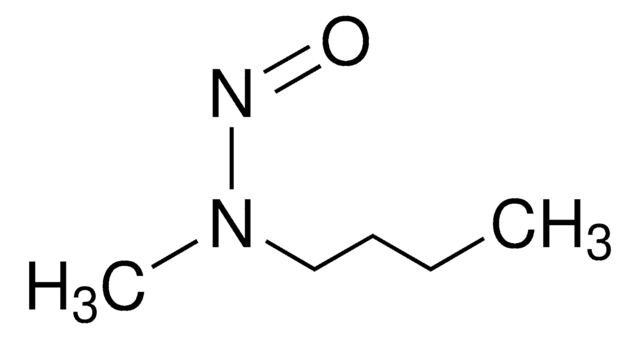N7756
N-Nitrosodimethylamine
Synonym(s):
Dimethylnitrosamine
About This Item
Recommended Products
vapor pressure
5 mmHg ( 20 °C)
description
Bulk package
refractive index
n20/D 1.437 (lit.)
bp
153 °C/774 mmHg (lit.)
density
1.01 g/mL (lit.)
storage temp.
2-8°C
SMILES string
CN(C)N=O
InChI
1S/C2H6N2O/c1-4(2)3-5/h1-2H3
InChI key
UMFJAHHVKNCGLG-UHFFFAOYSA-N
Looking for similar products? Visit Product Comparison Guide
Biochem/physiol Actions
Signal Word
Danger
Hazard Statements
Precautionary Statements
Hazard Classifications
Acute Tox. 1 Inhalation - Acute Tox. 2 Oral - Aquatic Chronic 2 - Carc. 1B - STOT RE 1
Target Organs
Liver
Storage Class Code
6.1A - Combustible acute toxic Cat. 1 and 2 / very toxic hazardous materials
WGK
WGK 3
Flash Point(F)
141.8 °F - closed cup
Flash Point(C)
61.0 °C - closed cup
Personal Protective Equipment
Choose from one of the most recent versions:
Already Own This Product?
Find documentation for the products that you have recently purchased in the Document Library.
Customers Also Viewed
Our team of scientists has experience in all areas of research including Life Science, Material Science, Chemical Synthesis, Chromatography, Analytical and many others.
Contact Technical Service








